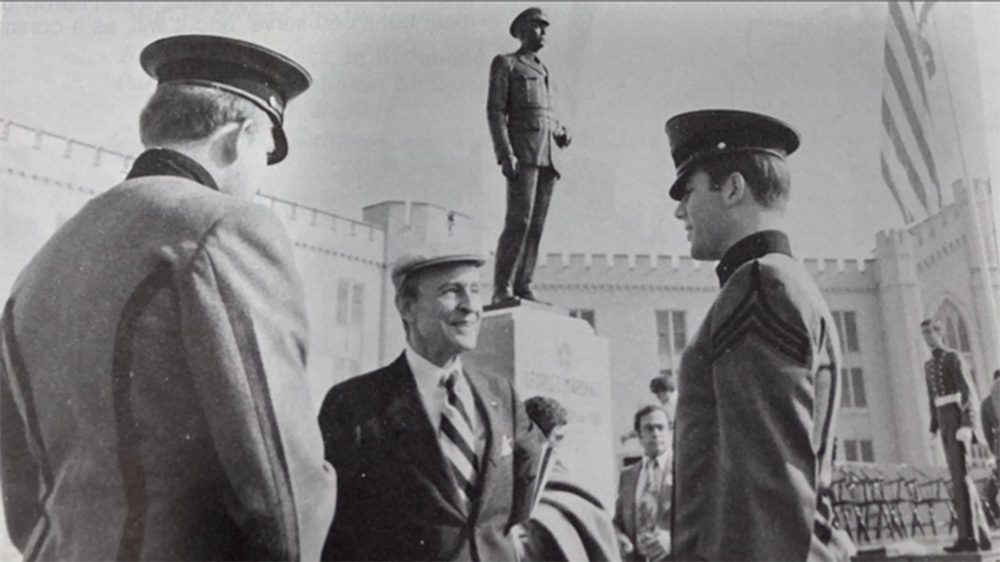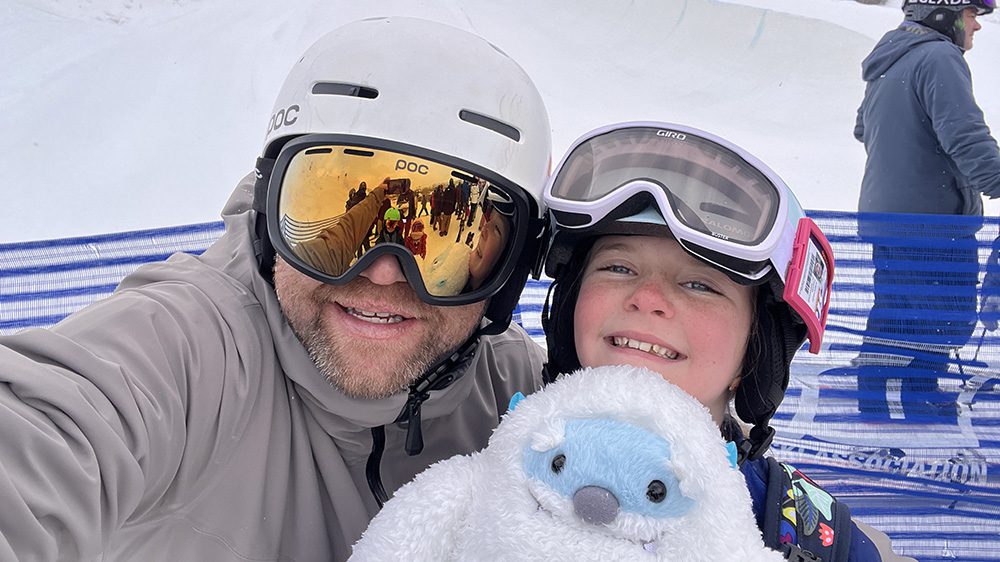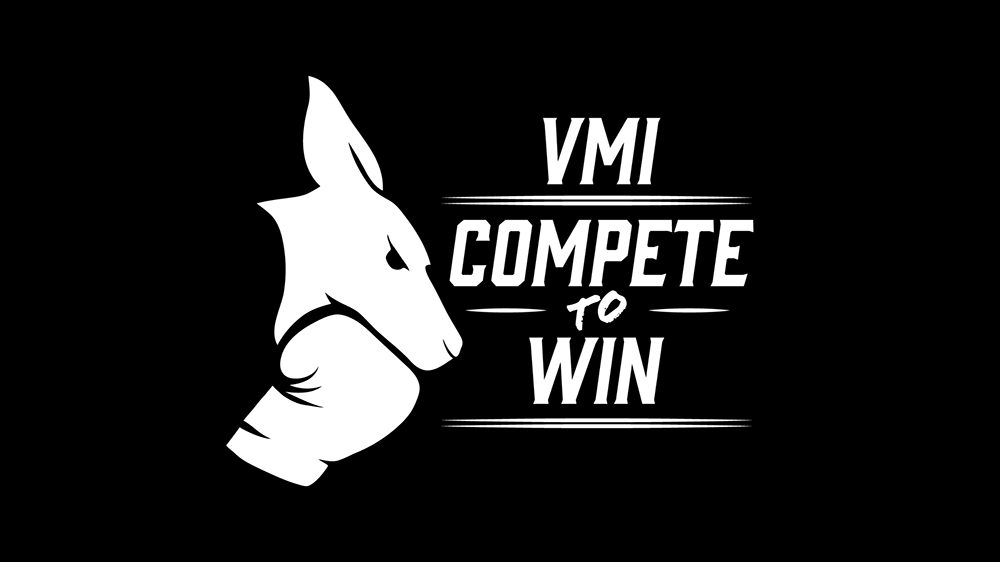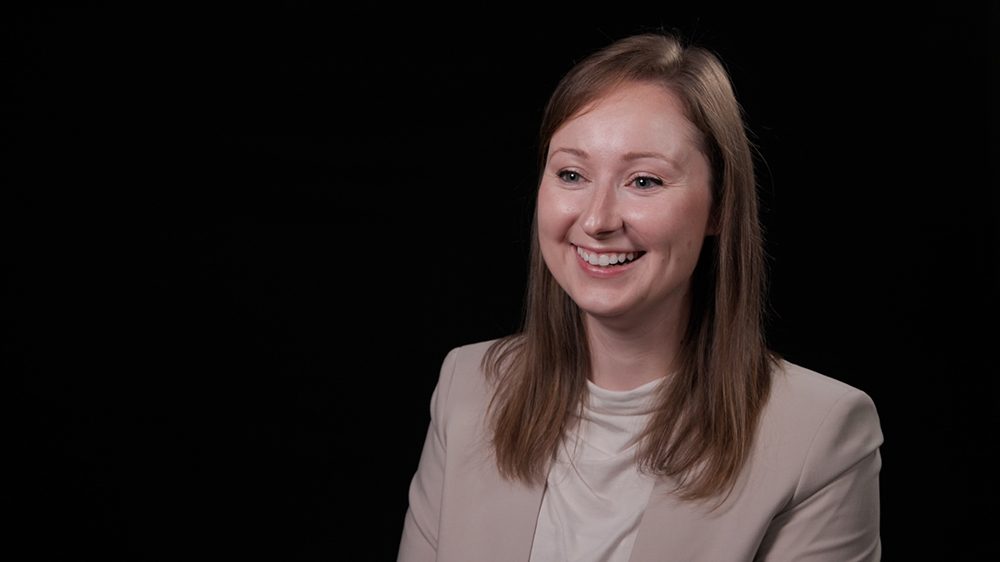Frank McCarthy, VMI Class of 1933, heard the most powerful man in the U.S. military call for assistance, and realized he was the only one in the office who could respond.
He was extremely nervous around the taciturn Gen. George C. Marshall, VMI Class of 1901, and the Army’s chief of staff. In fall 1941, Marshall asked McCarthy to get him a ticket to a VMI football game being held nearby that weekend. McCarthy called the visiting team and got a great seat. When he reported this to Marshall, the general suggested he get another ticket so they both could cheer for VMI. This was the start of a long-term friendship between Marshall and McCarthy that lasted until Marshall’s death in 1959.
McCarthy was born in Richmond, Virginia, in 1912. He grew up in a middle-class neighborhood where his father, McCarthy Sr., worked as an insurance agent. His mother, Lillian, or Lil, came from the Binford family, a prominent Virginian family in the Tidewater region. Both his grandfathers were Confederate veterans. McCarthy had two younger brothers, Julien and William Holladay McCarthy, VMI Class of 1939. McCarthy attended John Marshall High School in Richmond and was 15 when his father died. He chose VMI because he was attracted by the many activities available and the VMI spirit.
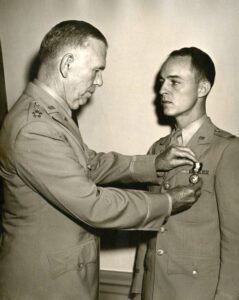
Gen. George C. Marshall, Class of 1901, and Brig. Gen. Frank McCarthy, Class of 1933, maintained a close friendship until Marshall’s death in 1959.—Photos courtesy Preston Library Archives.
Former Marine Maj. Gen. John A. Lejeune was the VMI superintendent during nearly all of McCarthy’s cadetship. McCarthy compiled an amazing record at VMI. He was a cadet corporal, sergeant, and cadet captain. He wore academic stars for three years and was the editor of the 1933 Bomb. McCarthy also produced a series of plays at VMI, including a musical his 1st Class year. He earned the coveted Cincinnati Medal for efficiency of service and excellence of character and graduated second of 24 students as a liberal arts major. McCarthy was also commissioned as a second lieutenant in the Army Reserve. Following graduation, as a former state cadet, McCarthy owed the state for his education and chose to teach as a “sub” in the VMI English department for two years. After teaching, he returned to Richmond as a police reporter for the News Ledger. This job was short-lived; he soon returned to VMI as an instructor and alumni secretary.
In 1937, McCarthy went to work for George Abbott, the Broadway producer. He served as a press agent for a number of plays, including Brother Rat. McCarthy later served as technical advisor on the film Brother Rat, starring Ronald Reagan. Just before the war, McCarthy earned a master’s degree in government from the University of Virginia. He planned to return to VMI to teach, but like many, he felt an obligation to join the military. With the help of Col. John Magruder, Class of 1909, former VMI commandant, McCarthy began active duty service as a first lieutenant in 1940. He was assigned to the G2 Intelligence section. In early 1941, the G2 was asked to nominate a top candidate to be an assistant secretary of the general staff in the chief of staff’s office. McCarthy was nominated and won the position. For the next three years, McCarthy worked closely with Marshall and was his liaison to the White House. McCarthy was a brilliant administrator, and much of the Marshall correspondence in the Marshall Library is available because McCarthy kept copies of everything. McCarthy maintained personal correspondence with a number of VMI men, including Gen. George S. Patton Jr., Class of 1907; Gen. Charles E. Kilbourne, Class of 1894, former VMI superintendent; Bev Read, Class of 1941, longtime Alumni Review editor; and James H.B. Peay Jr., Class of 1929, father of Gen. J.H. Binford Peay III ’62, superintendent emeritus. He also knew three presidents intimately: Franklin Roosevelt, Harry Truman, and Dwight Eisenhower. McCarthy kept a running correspondence with the latter two for many years.
Marshall was a great man but not an easy boss. He was horrible with names. His biographer, Forrest Pogue, related a story of Marshall calling his secretary Miss Mason and referring to McCarthy as McCartney until his secretary said, “My name is Nason, and McCartney is McCarthy.” McCarthy acted as aide to Marshall when he traveled to the great conferences of World War II, including Casablanca, Tehran, and Yalta. Marshall never kept an aide, but McCarthy filled in when needed. In 1944, McCarthy was promoted to colonel and became the secretary of the general staff. This position usually led to general rank and had been reserved for regular Army officers. McCarthy was a reserve officer, so Marshall obviously thought well of McCarthy.
Marshall believed that to attain higher rank, you had to be married. He introduced McCarthy to many a new secretary whom he came across. McCarthy escorted a number of young ladies, including Mary Churchill, daughter of Winston Churchill, former British prime minister. McCarthy’s nephew said that Mary was a little wild, and Churchill told McCarthy to have her home by 11 p.m. That did not happen, and before Churchill could chew out McCarthy upon his late return, McCarthy said, “It wasn’t me.” McCarthy would never marry.
While working for Marshall, McCarthy used his contacts to help others. His close friend from their Brother Rat movie days was actor Eddie Albert, who was trying to adopt a child from an Eastern European country. The adoption was stuck in the State Department, so McCarthy walked through the request, and the adoption became a reality.
As the war neared a close, McCarthy drew more media attention and was named one of the Most Outstanding Young Men in America by the U.S. Junior Chamber of Commerce. Henry Ford II was also on this list. McCarthy’s story even appeared in comic book form, and VMI approached him about being considered as the next superintendent. McCarthy declined this honor because he learned from Marshall that you must clean house when you take over and remove the deadwood. This would mean removing some of his friends, and he was not up to the task. McCarthy said this in his response to the head of the VMI Alumni Association. This was remarkable, as he was only 33 years old, but McCarthy was a media sensation.
McCarthy left the secretary of the general staff position to become, with Marshall’s help, the youngest assistant secretary of state under Harry S. Truman. Before he left, Marshall awarded McCarthy a Distinguished Service Medal for his service in World War II. McCarthy would continue to serve in the U.S. Army Reserve, achieving the rank of brigadier general in 1957. His assignment to the State Department was short-lived, and McCarthy resigned after six weeks due to “health reasons.”
McCarthy returned to Hollywood. He served as an assistant to the president of the motion picture association and as the MPA’s representative in Europe. In 1949, McCarthy became an executive and producer at 20th-Century Fox Studios. He also became head of public relations for the studio, which included being the morals watchdog.
McCarthy would go on to produce a number of films, including Decision Before Dawn, Sailor of the King, Guide for the Married Man, and Fireball Forward. Starting in 1951, he decided to make a movie about Patton. This is a story in itself, as McCarthy spent years trying to convince the Patton family and the War Department to make the movie. By the early 1960s, the Patton family was onboard; then, he fought with other studios who tried to beat him to the punch and make their own movie about Patton. McCarthy was a tough guy when he had to be and used legal means to restrain these interlopers. He still needed a script, a director, and a star. There were many actors who turned down the role. The Patton family wanted Spencer Tracy, but he died before the movie was filmed. Burt Lancaster was a prime target, but he begged off, as did John Wayne, Robert Mitchum, Lee Marvin, and Rod Steiger. Steiger said this was the biggest mistake of his career. McCarthy sorted the script and director out, as well.
Through the 1950s, McCarthy maintained a correspondence and frequently visited with Marshall and his wife. He also remained close to Eisenhower and was invited to both his inaugurations. McCarthy was a staunch conservative and functioned as Eisenhower’s campaign manager in California. When Marshall passed away in 1959, McCarthy was one of his pallbearers.
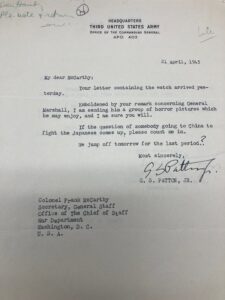
McCarthy maintained personal correspondence with a number of VMI men, including Gen. George S. Patton Jr., Class of 1907.
The movie Patton took 20 years to make and everything came together in 1970. The movie was made in Spain because of the availability of World War II equipment and cheaper costs. Omar Bradley, general of the army, and VMI’s Col. Glover Johns, Class of 1931, served as technical advisers. The rest is history, as Patton won seven Oscars, including Best Picture for McCarthy and Best Actor for George C. Scott, who was magnificent in the role of George S. Patton. The Patton family was pleased. Surprisingly, McCarthy did not receive either a percentage or residuals for the Patton movie, which was extremely successful at the box office. McCarthy would go on to make another movie, MacArthur, with Gregory Peck in 1977. This was not nearly as successful as Patton.
McCarthy remained devoted to his family but lived remotely on the opposite side of the country. He purchased a home for his mother in Richmond and was close to his two brothers. The brothers would always sing together when they reunited and had great harmony. His nephews remember him as “proper,” not stern, and as an “intellectual.” They were proud of their movie mogul uncle who took the time to write them letters. During the Vietnam War, McCarthy returned to active duty briefly and visited bases throughout Southeast Asia. He reported his findings to senior army officials. He was conflicted about the war seeing progress, but in private, he was not sure the U.S. should have been there.
McCarthy’s career began to wane by 1980. Interestingly, he worked on a movie about Marshall, and the Marshall Library has a script. McCarthy thought it lacked the pizazz to make it a success, as Marshall was not a Patton. McCarthy returned to VMI to help dedicate the Marshall statue in 1978. His Oscar went to the Marshall Foundation where it remains to this day.
McCarthy was a very private man who wanted to be remembered for his work during World War II and his Hollywood successes. He was a great public speaker with a Virginia accent who carried himself like the general he was. Throughout most of his post-war life, he had a long-term partner, Rupert Allan. Allan was a Rhodes scholar, World War II veteran, and publicist to a bevy of Hollywood royalty, including Marilyn Monroe, Grace Kelly, Betty Davis, Steve McQueen, and Gregory Peck. McCarthy was especially close to Kelly and had a room at his disposal at the palace in Monaco.
McCarthy never relinquished his association with VMI and attended a reunion in Southern California prior to his death in 1986. As he lay on his deathbed with cancer, McCarthy’s brothers, Julien and Bill, came for a final visit. The brothers harmonized together one last time. McCarthy’s voice was weak. Albert gave his eulogy, and Hollywood elite attended. His ashes were spread at sea off the coast of California. A stone with his name was placed near his family in Hollywood Cemetery in Richmond, Virginia.
Bill Scherer ’70 works in the movie industry and knew McCarthy well. He described McCarthy as “admired and loved” by people in front and behind the camera. Scherer said McCarthy was a great storyteller and was without an ego. McCarthy kept confidences and was close to the Hollywood elite. He was so “well rounded” that he could talk about any subject. Finally, Bill remembered that McCarthy rarely talked about himself and instead wanted to know about you. Scherer said he will never forget McCarthy. What a great memory of a great man.
McCarthy, the general and the Oscar-winning producer, was a remarkable graduate of VMI in the 20th century.
Sources: Forrest Pogue, Organizer of Victory, pp. 63-64. VMI Biographical sketch, VMI Archives, dated Dec. 6, 1935. McCarthy Letter to General Kilbourne, July 26, 1940, Marshall Foundation. Interview with nephew, Frank McCarthy, Oct. 10, 2021. Letter to VMI Alumni Association, Aug. 14, 1945, McCarthy Papers. McCarthy Letter to President Truman, Oct. 11, 1945, McCarthy Papers. Carlo D’Este, Article: The Patton Film from Reel to Reel, September 2014, Armchair Central Magazine. Interview with nephew, Julien McCarthy, Oct. 8, 2021. Melissa Davis, Marshall Foundation Archivist, Sept. 28, 2021. WOW Report, Oct. 24, 2019. Email with Bill Scherer, Nov. 15, 2021.
-
Jim Dittrich ’76 VMI Alumni Association Historian

